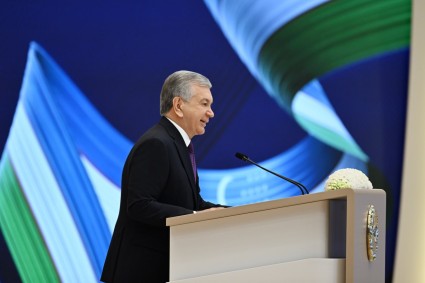The volume of money remittances to Uzbekistan increased by 2.1 times in 2022 - to a record $16.9 billion, the governor of Central Bank Mamarizo Nurmuratov said at a press conference on Thursday.
According to him, 85% or about $14.5 billion of transfers are from Russia, which is by 2.6 times more than in 2021.
“In our monetary observations and monitoring, we do not believe that all these $17 billion serve to form domestic gross demand. We take into account only $11.5-12 billion,” he said.
According to him, this difference is due to the fact that in Kyrgyzstan and Tajikistan during 2022 there was a certain shortage of cash currency, due to which some restrictions were introduced in banks. Under these conditions, citizens of these countries transferred currency to Uzbekistan and cashed it out through Uzbek banks.
“It’s a little difficult for us to reflect this in numbers, because we don’t ask the recipient of money what country he is from… But we continue to monitor and identify this through an increase in the number of citizens,” he explained.
Against the background of an increase in the inflow of remittances, the figures of foreign exchange transactions also increased. In January-December, banks purchased $11.9 billion worth of currencies from the population, which is by $4.8 billion, or 1.7 times more than in 2021. While, individuals bought currencies worth $8.9 billion, which is by $4.3 billion, or almost twice as much as the previous year.
In general, the volume of supply surpassed demand by $2.9 billion.
The volume of remittances from Uzbekistan to other countries increased by 29% to $2.1 billion. According to the governor, there are "no fundamental changes" in the structure of recipient countries.
“Basically, these are Turkey, China, that is, those countries with which the term “shuttle trade” is associated. Remittances to the US have also grown. There is also India, where citizens go for treatment,” he said.
In July, Mamarizo Nurmuratov explained the sharp increase in remittances to Uzbekistan for a number of reasons. Among them are the legalization of previously unrecorded channels for sending money and the restriction of "gypsy mail", the growth of export earnings in cash, and others.













